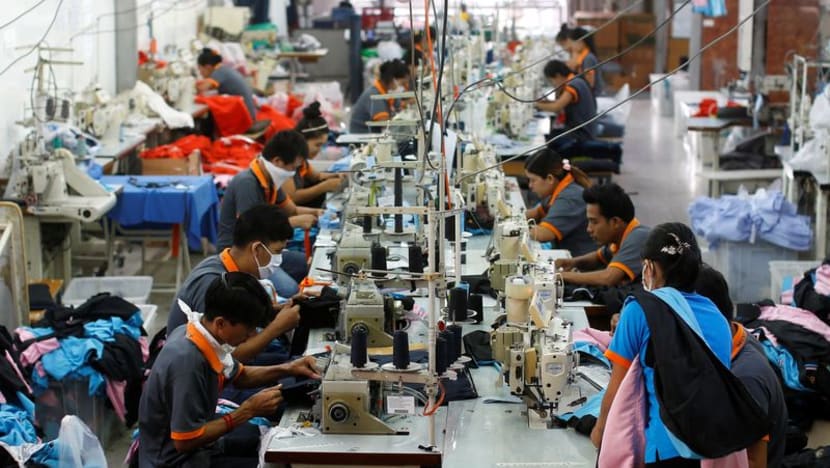Business
Thai Industrial Sentiment Hits 3-Year Low Amid U.S. Tariffs

Thailand’s industrial sentiment has declined for the fifth consecutive month, reaching a three-year low in July 2025, primarily due to concerns surrounding U.S. tariffs and ongoing border conflicts with Cambodia. The Federation of Thai Industries (FTI) reported a drop in its industrial sentiment index to 86.6, down from 87.7 in June. This decline reflects worries about the economic landscape and its impact on various sectors.
The survey conducted by the FTI was completed prior to the announcement of new tariffs on Thai imports set at 19 percent. While this reduction from a previous 36 percent tariff was anticipated, uncertainty remains regarding tariffs on transshipments through Thailand from third countries. According to FTI chairman Kriengkrai Theinnukul, the marginal relief provided by the new rates is insufficient for low-margin industries such as processed foods and agricultural products, which continue to face significant challenges.
“These sectors have margins below 10 percent,” Theinnukul stated during a news conference. “They can’t pass on higher costs to consumers. They may not survive for much longer. We hope the government will quickly support them with credit.” The United States is Thailand’s largest export market, accounting for 18.3 percent of total shipments last year, valued at approximately $55 billion.
Factors Affecting Industrial Sentiment
The FTI also highlighted other factors contributing to the decline in industrial sentiment, including severe flooding in northern Thailand and a general weakening of consumer purchasing power. The ongoing border conflict with Cambodia has disrupted trade, further complicating the situation for the agricultural sector, which has been adversely affected by the exodus of Cambodian workers from Thailand.
“We’re aware of short-term impacts, particularly in agriculture, where farmers are struggling to find workers during harvest season,” Theinnukul emphasized. “The government needs to intervene and provide immediate support.”
In a separate development, the Thai cabinet approved a draft law aimed at establishing a national credit guarantee agency designed to assist smaller firms in securing loans. The Bank of Thailand expressed concern regarding the growing levels of bad debt and declining credit available to small businesses. Overall bank lending decreased by 0.9 percent on an annual basis in the second quarter of 2025, with loans to small firms experiencing a significant drop of 6.2 percent.
The current economic climate poses serious challenges for Thailand’s industrial sector and underscores the necessity for timely government intervention to support vulnerable industries and ensure sustainable economic growth.
-

 World5 months ago
World5 months agoSouth Korea’s Foreign Minister Cho Hyun to Visit China This Week
-

 Business5 months ago
Business5 months agoStarling Bank Plans Secondary Share Sale, Targeting $5.4 Billion Valuation
-

 Top Stories5 months ago
Top Stories5 months agoMunsang College Celebrates 100 Years with Grand Ceremony
-

 World5 months ago
World5 months agoPAS Aims to Expand Parliamentary Influence in Upcoming Election
-

 Business7 months ago
Business7 months agoKenvue Dismisses CEO Thibaut Mongon as Strategic Review Advances
-

 Lifestyle6 months ago
Lifestyle6 months agoHumanism Camp Engages 250 Youths in Summer Fest 2025
-

 Sports6 months ago
Sports6 months agoDe Minaur Triumphs at Washington Open After Thrilling Comeback
-

 Sports7 months ago
Sports7 months agoTupou and Daugunu Join First Nations Squad for Lions Clash
-

 Top Stories7 months ago
Top Stories7 months agoColombian Senator Miguel Uribe Shows Signs of Recovery After Attack
-

 World7 months ago
World7 months agoASEAN Gears Up for Historic Joint Meeting of Foreign and Economic Ministers
-

 Health6 months ago
Health6 months agoNew Study Challenges Assumptions About Aging and Inflammation
-

 Business7 months ago
Business7 months agoOil Prices Surge Following New EU Sanctions on Russia









